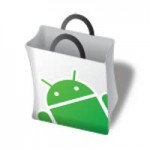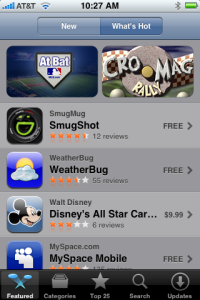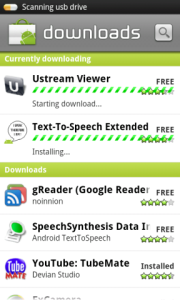iPhone vs Android: Battle of the App Stores
 There’s no doubt that both the Android and iPhone platforms are by far the most popular smartphone choices today, and one of the major contributing factors to their success was their expansive app library. Because applications are such an integral part of both of these platforms, we decided to take a look at their respective app store – because what good are the apps if you can’t find them? So here it is, Apple’s App Store versus the Android Marketplace.
There’s no doubt that both the Android and iPhone platforms are by far the most popular smartphone choices today, and one of the major contributing factors to their success was their expansive app library. Because applications are such an integral part of both of these platforms, we decided to take a look at their respective app store – because what good are the apps if you can’t find them? So here it is, Apple’s App Store versus the Android Marketplace.
App Selection: The More the Merrier

In terms of pure numbers, Apple’s App Store wins this one hands down, but even though the Apple App Store continues to grow, the Android Marketplace is quickly catching up. When the Android platform first launched (with the HTC G1), it had only a few thousand apps, while the Apple App Store had nearly 100,000. Now Android has nearly 300,000 applications, right on the heels of the App Store, and even though the Apple App Store has a few more apps available, nearly all of the popular iPhone apps have been available on Android for some time now. We have to call this one a tie.
Score: 1 to 1
Interfacing: How to Find Your Apps

What good is it if you can’t search for the apps you want? Apple’s App Store does this fairly well, letting you sort through the thousands of apps with keyword searches and filters. In some bit of cosmic irony, the Android Marketplace isn’t that great when it comes to searching for an app. As long as you know the name of the Android app you’re looking for, it’s a snap to find, but start searching with keywords and descriptions, and you might never find it. Apple takes this round, though it too has some room for improvement.
Score: 2 to 1, Apple
Runtime: Installing and Updating Your Apps

While both platforms are very straightforward when it comes to managing your apps, the Android Marketplace just does it smoother. Everything can be managed from within the Marketplace, including installing, uninstalling, and updating. It’s simple to select which apps you want to update and queue them all together. The Apple App Store sort of bounces you in and out when installing new apps, and updates are difficult to customize. Both app stores make it simple to manager your apps, but the Android Marketplace does it better.
Score: 2 to 2
Fragmentation: Fact or Fiction?
 Whenever comparing Android to iPhone, fragmentation inevitably comes up as an argument against the Android platform, suggesting that with so many different devices running Android, the apps won’t work for any of them, such as old phones trying to run new apps. In truth, Android really doesn’t have much more of a fragmentation problem than the iPhone does (try making a video call with an iPhone 3GS – you can’t do it). Just like with PCs, some applications require newer hardware, but most are designed to run on the majority of systems. Fragmentation really shouldn’t be a factor for an end user since both app stores filter out apps that are not intended for your device. You may think it’s surprising, but this round is a tie.
Whenever comparing Android to iPhone, fragmentation inevitably comes up as an argument against the Android platform, suggesting that with so many different devices running Android, the apps won’t work for any of them, such as old phones trying to run new apps. In truth, Android really doesn’t have much more of a fragmentation problem than the iPhone does (try making a video call with an iPhone 3GS – you can’t do it). Just like with PCs, some applications require newer hardware, but most are designed to run on the majority of systems. Fragmentation really shouldn’t be a factor for an end user since both app stores filter out apps that are not intended for your device. You may think it’s surprising, but this round is a tie.
Final Score: 3 to 3
When it really comes down to it, both app stores have their strengths and weaknesses, but neither outshines the other considerably in any real aspect. When choosing between an Android or an iPhone, the app stores don’t really need to be part of the decision.

